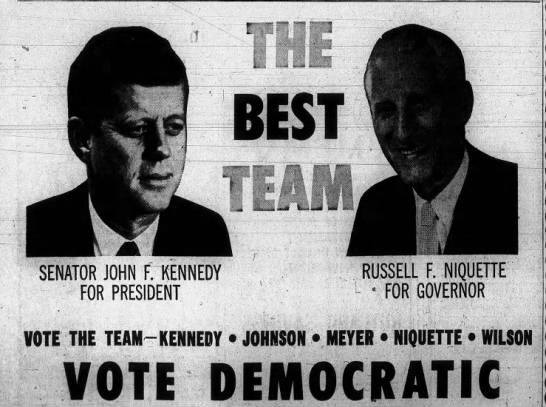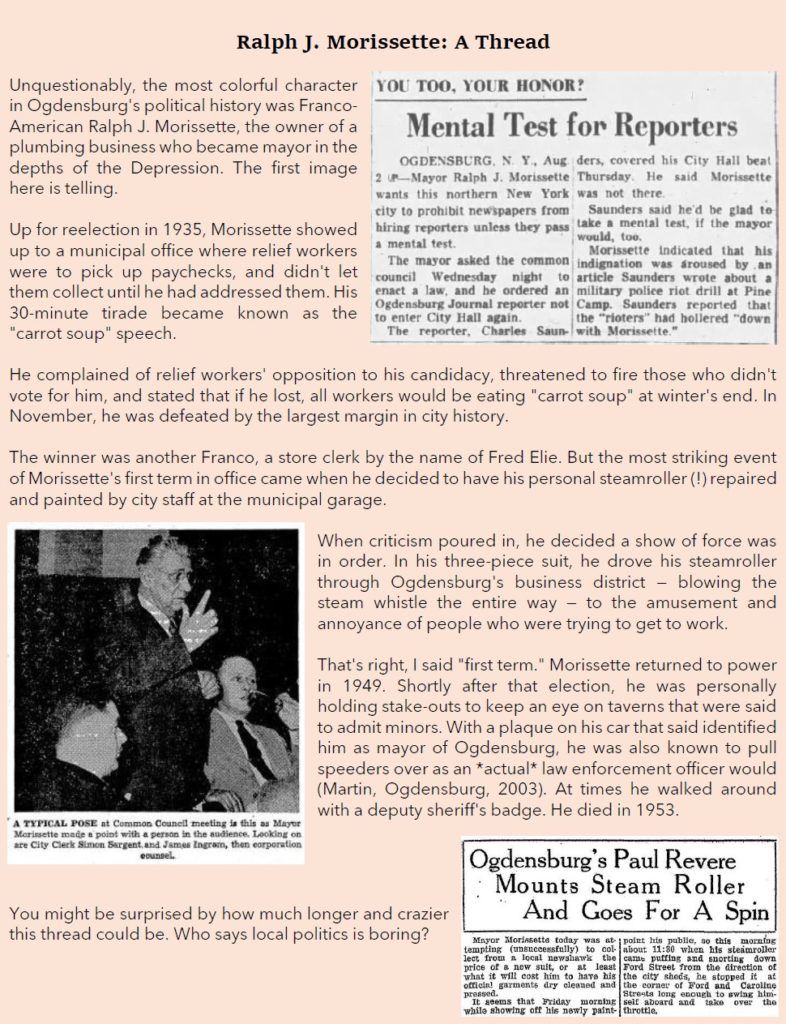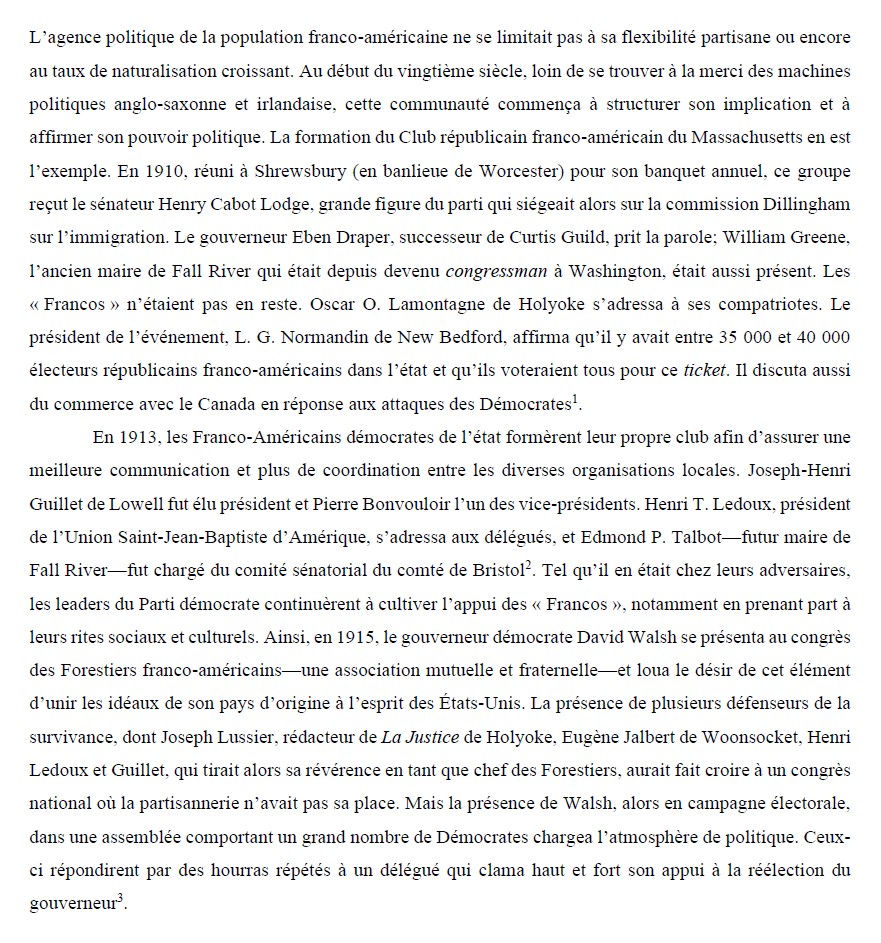A week ago, I submitted my second book manuscript to a university press.[1] And yes, this one is about Franco-Americans. The amount of Franco-related political items I have shared on this blog and on Twitter since the beginning of the year is in fact closely related to this research project.
The struggle for survivance and the life of textile workers has attracted a great deal of attention among scholars of Franco-American history. On the other hand, we know very little about the ways in which Francos engaged with distinctly American institutions and American culture in the early decades of their organized existence on U.S. soil. Our inherited narrative states that French Canadians sought to form island communities insulated from the threat of anglicization and protestantization; at the same time, the Irish and Yankees were endeavoring to marginalize these immigrants from the North. Of course, I do not dispute that those were powerful and very real forces. But it is easy to forget that the process of acculturation did not begin at the time of the Second World War. The work of scholars like James Barrett, Gary Gerstle, and Lizabeth Cohen (who emphasize the means by which immigrant groups “encountered” and engaged with old-stock Americans) has had but little impact on the overall historiographical conversation on Franco-Americans. That’s where political history comes in.

Most syntheses of Franco-American history devote only a few pages to politics—just long enough to mention Aram Pothier and Hugo Dubuque and to make an overarching claim about Franco support for either the Republicans or the Democrats. The few books (by David Walker and Ronald Petrin) and articles (by Madeleine Giguère and J.-André Sénécal, notably) on this topic are either very localized or so broad that we fail to see the “illustrative material” that adds substance and weight to an argument. My manuscript steers a middle course. In 350 pages, it aims to move the conversation forward. It is absolutely not the definitive word on Franco-Americans’ political journey. That would be a reasonable goal for nothing less than a 1,500-page brick. But this manuscript does settle some essential points to offer a sound basis for further research… and sure, future debate.
To tantalize the few who may be interested in the topic, I include below a thread on one of the colorful characters I have dug up as well as a brief excerpt of the manuscript. Stay tuned for more information.


[1] See here for more about the first, which also lies in the realm of political history—and yes it should be out just before Fathers’ Day, hint-hint.
Leave a Reply